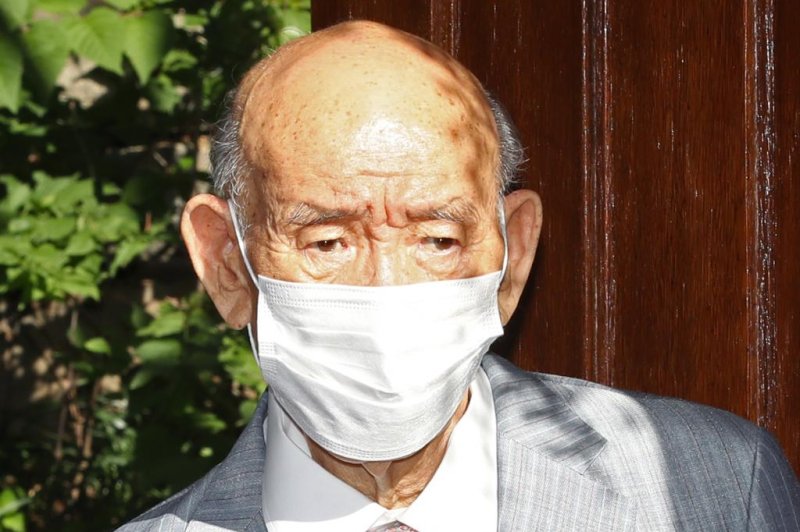Chun Doo-hwan, ex-South Korean dictator, dies at 90

Chun Doo-hwan, the former strongman president of South Korea who oversaw the brutal Gwangju massacre of pro-democracy activists in 1980, died Tuesday at 90 years old. File photo by Yonhap
SEOUL, Nov. 23 (UPI) -- Former South Korean President Chun Doo-hwan, a general who seized power in a 1979 military coup and brutally suppressed a pro-democracy uprising in the city of Gwangju a year later, died Tuesday at his home in Seoul. He was 90 years old.
Chun collapsed in his home on Tuesday morning, South Korean news agency Yonhap reported. He had been battling chronic ailments and was receiving treatment for multiple myeloma, a type of bone cancer, Yonhap said
The military commander rose to power in the wake of the 1979 assassination of President Park Chung-hee, the dictator who had ruled South Korea for 18 years.
In May 1980, Chun sent tanks, helicopters and troops to crush a pro-democracy student uprising in the southern city of Gwangju, an event that remains one of the most infamous and painful in modern Korean history. The massacre at Gwangju officially left some 200 dead, but accounts by witnesses, investigators and victims' families put the toll several times higher.
The strongman stayed in power until 1988, when he stepped down after enormous public pressure led to the country's first democratic elections. Chun's chosen successor, coup co-conspirator Roh Tae-woo, won the December 1987 vote by a plurality after candidates Kim Young-sam and Kim Dae-jung -- both future presidents -- split the opposition ballots.
In 1996, Chun and his ally Roh were convicted on charges of treason and mutiny stemming from the coup and Gwangju massacre. Chun received a commuted death sentence but was pardoned the next year by President Kim Young-sam in an effort to bring the country together.
Chun was born in the rural southeastern county of Hapcheon on Jan. 23, 1931, and rose through the ranks of the South Korean military in the years after the 1950-53 Korean War. He took part in the 1961 coup by Park Chung-hee as an army captain and eventually became a major general in 1977.
Some credit Chun for the continued growth of the Korean economy in the 1980s and Seoul's successful hosting of the Summer Olympics in 1988, but his legacy is more widely considered one of ignominy, corruption and unapologetic brutality.
Chun never expressed remorse for his role in the Gwangju massacre and always denied direct responsibility. He also claimed that North Korean provocateurs were behind the uprising, a conspiracy theory that continues to swirl around some right-wing circles.
South Korea's presidential Blue House expressed regret on Tuesday that Chun died without an apology and said that it had no plans to send flowers or official condolenc
"We regret that [Chun] did not reveal the truth of history and that there was no sincere apology," Park Kyung-mee, spokeswoman for President Moon Jae-in, told reporters.
The Blue House offered prayers for the deceased and words of sympathy to the bereaved family, Park said.
Chun was convicted of libel last year for defaming a priest who had testified to seeing helicopters shooting at civilians during the massacre, calling him a "liar" and "Satan" in a 2017 memoir. He received an eight-month suspended sentence.
In 1996, the ex-president was also convicted on charges of massive bribery while in office and ordered to repay the government some $185 million. He claimed to not have the assets to pay the fine, famously sparking outrage in 2003 by testifying that he only had around $250 in his bank account.
Chun's death comes less than a month after that of his ally and successor Roh Tae-woo, who passed away on Oct. 23 at the age of 88.
No comments:
Post a Comment